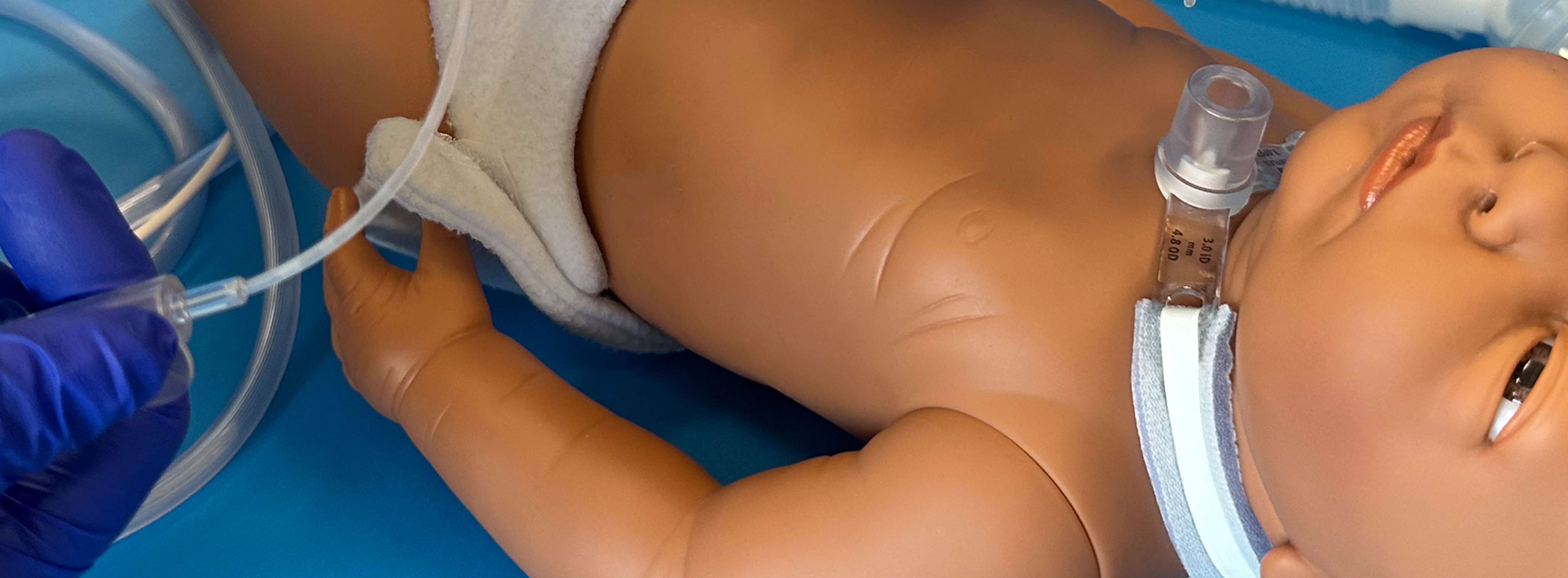By the end of this chapter, you will be able to:
- describe what manually assist cough method is and why it is used
- demonstrate how to perform manually assisted cough for your child with a tracheostomy tube
The goal of the manually assisted cough method is to increase the force of air out of the lungs to assist your child’s cough and help them clear secretions. The manual assisted cough method involves pushing on your child’s belly just as they are trying to cough.
When should I use the assisted cough method?
You can provide a manual assisted cough after you have inflated the lungs using LVR or with a CoughAssist machine.
Always wait for your healthcare team to confirm that this method is suitable for your child before you start using it.
The manual assisted cough method is not suitable if your child has:
- had a recent head or neck injury
- had recent spinal surgery
- bleeding in the lungs
- fluid in the lungs
- bronchopleural fistula
- anxiety
- an active resistance to or intolerance of position changes
- a rib fracture or any other significant chest injury
- a surgical wound near the area
How do I give a manual assisted cough?
-

Make sure your child is sitting upright and is comfortable. If your child is sitting on a chair, make sure it will not tip over.
-

Have your child take a deep breath and hold it or you can stack breaths with an LVR bag (remove the bag before the child coughs).
-

Place the heel of one hand on your child’s abdomen just above their belly button.
-

Place your other hand on top of the first hand and interlock your fingers so that they are pulled away from the body.
- Keep your elbows straight.
-

When your child coughs, push upward under the rib cage once. It may take practice to coordinate the push with the cough.
When should I use the manual assisted cough method?
The manual assisted cough method with LVR or CoughAssist should be done on an empty stomach on the following schedule:
- before eating a meal
- at least one hour after eating a meal
- bedtime
- first thing in the morning when your child wakes up
Precautions
- Stop the manual assisted cough method immediately if your child experiences:
- nausea
- vomiting
- aspiration (for example has accidentally inhaled food)
- headaches
- muscle pain
- pain in the ribs or spine
Remember, only use the manual assisted cough method if you are cleared to do so by your child’s health-care team. Talk to your child’s health-care provider and physiotherapist about a plan to reduce any possible risks to your child while helping them cough.
